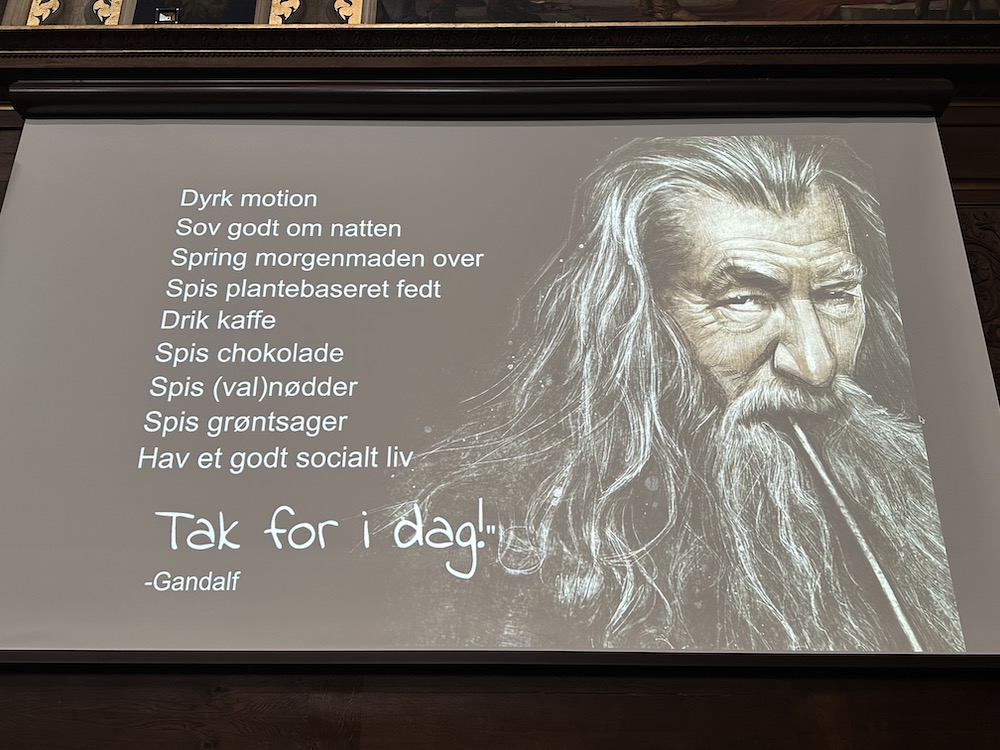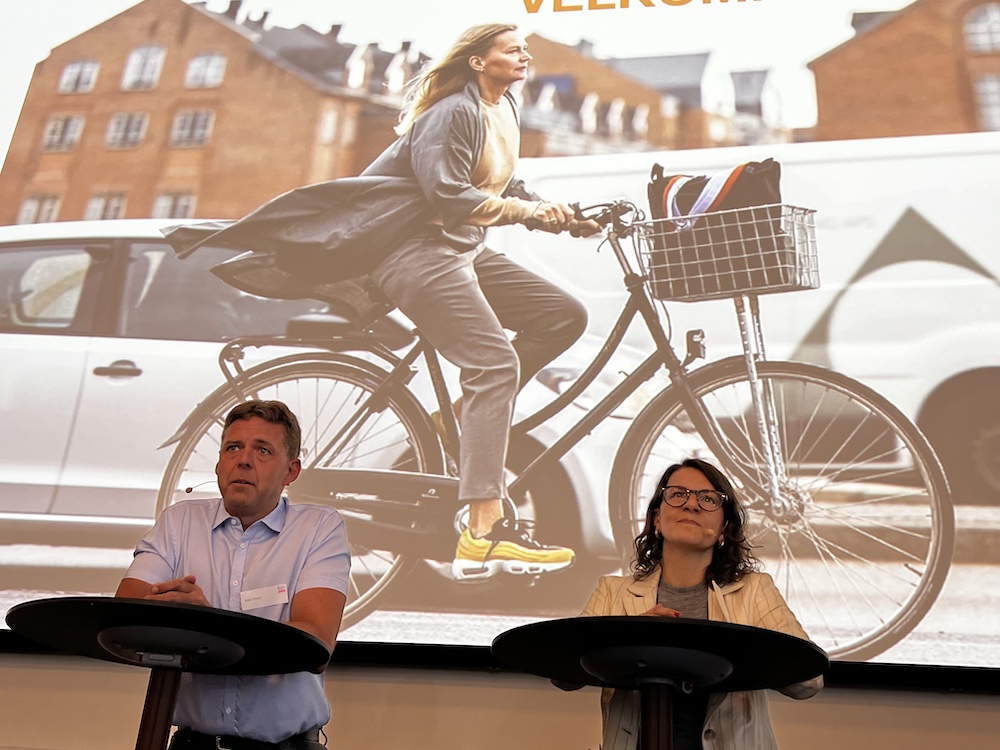
Nobody Should Get Sick From Breathing
(Article in Danish below this English version)
At least 10 Danes die every day due to air pollution. The air must be improved and Denmark must meet the WHO recommendations for air pollution by 2030 – and be the first country in the world to do so. This was the message at SUND LUFT conference in Copenhagen May 15th 2023.
Environmental and health professionals joined forces to discuss how to improve the air pollution levels in Denmark at the Healthy Air (SUND LUFT) conference on 15 May in Copenhagen. Several organisations agreed that air pollution should be tackled both from an environmental perspective and with a focus on its impact on human health.
Asthma-Allergy Denmark launched a citizens’ proposal to get Denmark to meet the WHO recommendations for air pollution by 2030.
“Every year, air pollution with particles and gases is responsible for 4,000-6,000 premature deaths, a host of chronic diseases and costs Danish society around DKK 95 billion annually. But we can’t just stop breathing,” says the organisation, which attended the conference with its director Anne Holm Hansen.
A number of other organisations and private individuals support the proposal, and at the conference, the Danish Lung Association, the Danish Cancer Society and the Danish Heart Foundation also spoke out strongly in favour of more focus on the problem.
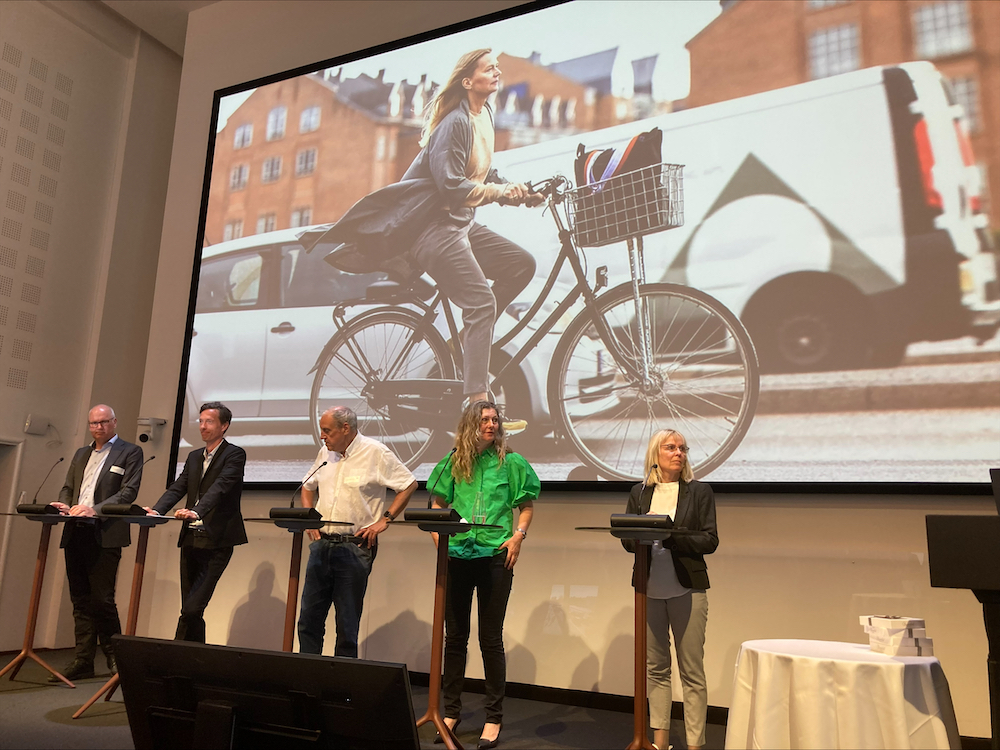
From left: Niels Sandøe, enhedschef, Forebyggelse og ulighed, Sundhedsstyrelsen, områdedirektør Morten Ørsted-Rasmussen, Hjerteforeningen, bestyrelsesformand Torben Mogensen, Lungeforeningen, forebyggelseschef Mette Lolk Hanak, Kræftens Bekæmpelse and Anne Holm Hansen from Astma-Allergi Danmark
We have now focused a lot on smoking. Not that we shouldn’t anymore, but air pollution is super important, was the message from Mette Lolk Hanak, Head of Prevention at the Danish Cancer Society, who has a position on air pollution.
Speakers at the conference gave a lot of different numbers of deaths and illnesses caused by air pollution, and the organisations agreed with Niels Sandøe from the Danish Health and Medicines Authority that they had to join forces with researchers to establish more common reference points in relation to the health costs of air pollution.
Kjeld Hansen, President of the European Lung Foundation, gave a number of concrete examples of patients who live with air pollution and showed what it means for them in their daily lives: they take into account the weather and the route they take to work, they avoid exercising during rush hour, and they avoid cycling on roads with tall buildings that exacerbate pollution.
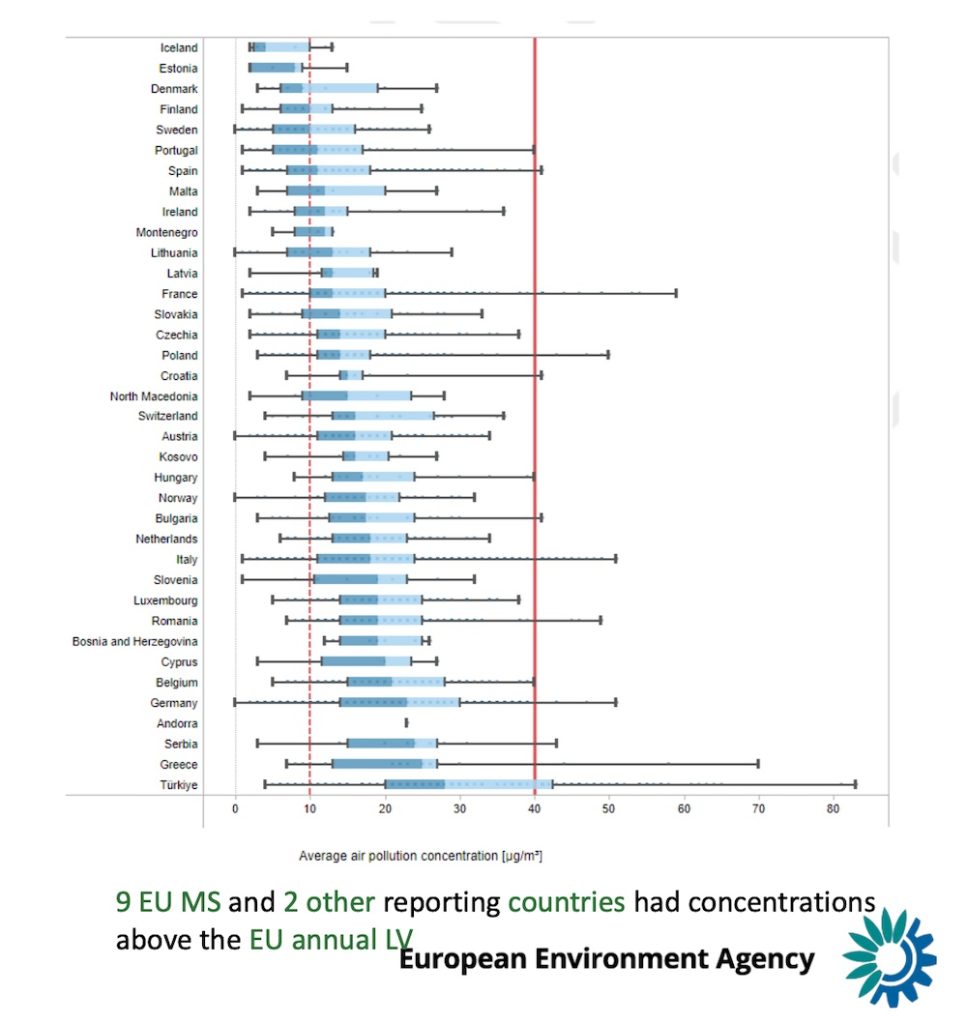
Although Denmark is comfortably in third place behind Iceland and Estonia – closely followed by Finland, Sweden and Portugal – according to the EU Environment Agency and although levels are falling, even low levels of air pollution are harmful, said senior researcher Camilla Geels, DCE, Aarhus University, who also pointed out that the annual cost of air pollution in Denmark is DKK 63 billion.
The solutions are out there
Senior researcher Steen Solvang Jensen, from Aarhus University, pointed to a wide range of solutions to combat air pollution. In relation to traffic, he pointed to: Electrification of road transport, electric fuels and hydrogen for heavy transport, the introduction of low-emission zones and road pricing.
On wood-burning stoves, Steen Solvang Jensen pointed to the possibility of banning pre-2008 stoves in areas where district heating and natural gas are available and introducing taxes, particle filters or bans.
Thomas Henrichs, Deputy Head of the Clean Air & Urban Policy Unit, from the European Commission, explained how the EU has a target to completely eliminate air pollution by 2050, with a particular focus on the eastern countries where pollution is worst.
Professor Morten Grønbæk, Director of the Centre for Healthy Living and Wellbeing, promised to get rid of his wood-burning stove, even if it is in a holiday home in France in a sparsely populated area.
Professor Zorana Jovanovic Andersen from the University of Copenhagen and Senior Adviser Kåre Press-Kristensen from Green Transition Denmark thanked the participants after Kåre Press-Kristensen made two provocative observations:
If people who die from air pollution died in a different way – if their heads blew up, wouldn’t action be taken NOW?
Referring to the Danish Environment Agency’s wood-burning stove campaign explaining how to use the stove and make polite less, he said:
“Would the health authorities do a campaign about smoking where they said: Light from the top and don’t inhale so violently? Well, no, they say STOP smoking.”
Main photo: Kåre Press-Kristensen og Zorana Jovanovic Andersen, hosting the SUND LUFT conference
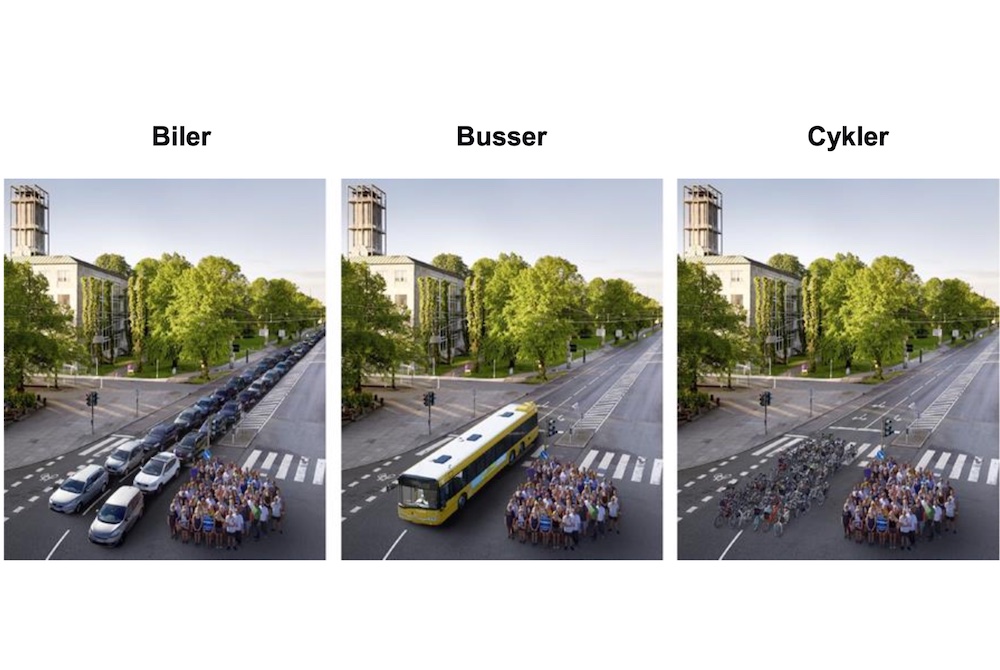
Illustration is from Steen Solvang Jensen slides showing how much a group of people take up when they are in their cars, in a bus and on bikes.
Ingen skal blive syge af at trække vejret
Hver dag dør mindst 10 danskere på grund af luftforureningen. Luften skal forbedres og Danmark skal leve op til WHOs anbefalinger for luftforureningen inden 2030 – som det første land i verden, lød det fra konferencen Sund Luft.
En række miljø- og sundhedsprofessionelle stod sammen om at forbedre luftforureningen i Danmark på konferencen Sund Luft den 15.5. i København. Flere organisationer og eksperter enige om, at man skal angribe luftforureningen både med miljøbriller på og med fokus på de konsekvenser, den har på menneskers sundhed.
Astma-Allergi Danmark lagde slagkraftigt ud med en borgerforslag om at få Danmark til at leve op til WHO’s anbefalinger for luftforurening inden 2030.
“Luftforurening med partikler og gas er hvert år skyld i 4.000-6.000 for tidlige dødsfald, et væld af kroniske sygdomme og koster årligt det danske samfund omkring 95 milliarder kr. Men vi kan jo ikke bare stoppe med at trække vejret,” lyder det fra organisationen, som deltog på konference med direktør Anne Holm Hansen.
En række andre organisationer og privatpersoner bakker op om forslaget, og på konferencen talte både Lungeforeningen, Kræftens Bekæmpelse og Hjerteforeningen også med store bogstaver for at få mere fokus på problemet.
Nu har vi fokuseret enormt meget på rygning. Ikke at vi ikke skal det mere, men luftforureningen er super vigtig, lød budskabet fra forebyggelseschef Mette Lolk Hanak fra Kræftens Bekæmpelse.
Det føg med tal om antal døde og syge pga luftforurening, og organisationerne blev enige med Niels Sandøe fra Sundhedsstyrelsen om, at de måtte gå sammen med forskerne om at få fælles referencepunkter i forhold til hvad luftforureningen koster på sundheden.
Formand Kjeld Hansen fra European Lung Foundation leverede en række konkrete eksempler på patienter, der lever på trods af luftforureningen og viste, hvad det betyder for dem i hverdagen; de tager hensyn til vejret og hvilken rute, de tager på arbejde, de undgår at motionere i myldretiden, og de undgår at cykle på veje med høje bygninger som forværrer forureningen.
Selv om Danmark ifølge EUs Miljøagentur ligger lunt på en tredjeplads efter Island og Estland – tæt forfulgt af Finland, Sverige og Portugal – og selv om niveauerne falder, så er selv lave niveauer af luftforurening skadelige, lød det fra seniorforsker Camilla Geels, DCE, Århus Universitet, der også pegede på, at de årlige omkostninger ved luftforureningen i Danmark er på 63 milliarder kroner.
Løsningerne er derude
Seniorforsker Steen Solvang Jensen fra Århus Universitet, pegede på en lang række løsninger til bekæmpelse af luftforureningen. I forhold til trafik pegede han på:
Elektrificering af vejtransport, elektrobrændstoffer og brint for tung transport, indførelse af mulemissionszoner og vejafgifter.
I forhold til brændeovne pegede han på muligheden for at forbyde brændeovne fra før 2008 i områder, hvor der er fjernvarme og naturgas og indførelse afgifter, partikelfiltre eller forbud.
Thomas Henrichs, Deputy Head of the Clean Air & Urban Policy Unit, fra EU Kommissionen fortalte, hvordan EU har et mål om helt at fjerne luftforurenigen inden 2050, og at der især er fokus på landene i øst, hvor forureningen er værst.
Både Århus og København fortalte om gode tiltag for at rense luften i de to store byer, og professor Morten Grønbæk, Direktør for Center for Sundt Liv og Trivsel lovede at skille sig af med sin brændeovn, selv om den sidder i et sommerhus i Frankrig i et tyndt befolket område.
Professor Zorana Jovanovic Andersen fra Københavns Universitet og seniorrådgiver Kåre Press-Kristensen fra Rådet for Grøn Omstilling bød velkommen og takkede af. Og Kåre Press-Kristensen kom med to provokerende konstateringer:
Hvis nu folk, der dør af luftforurening, døde på en anden måde – hvis deres hovedet sprang i luften, ville der så ikke omme handling NU?
Og med henvisnings til Miljøstyrelsens brændeovnskampagne, hvor man forklarer hvordan man kan bruge ovnen og svine lidt mindre, sagde han:
“Ville Sundhedsmyndighederne lave en kampagne omkring rygning, hvor de sagde: Tænd fra toppen og inhaler ikke så voldsomt? Nej vel, de siger STOP rygning.”
